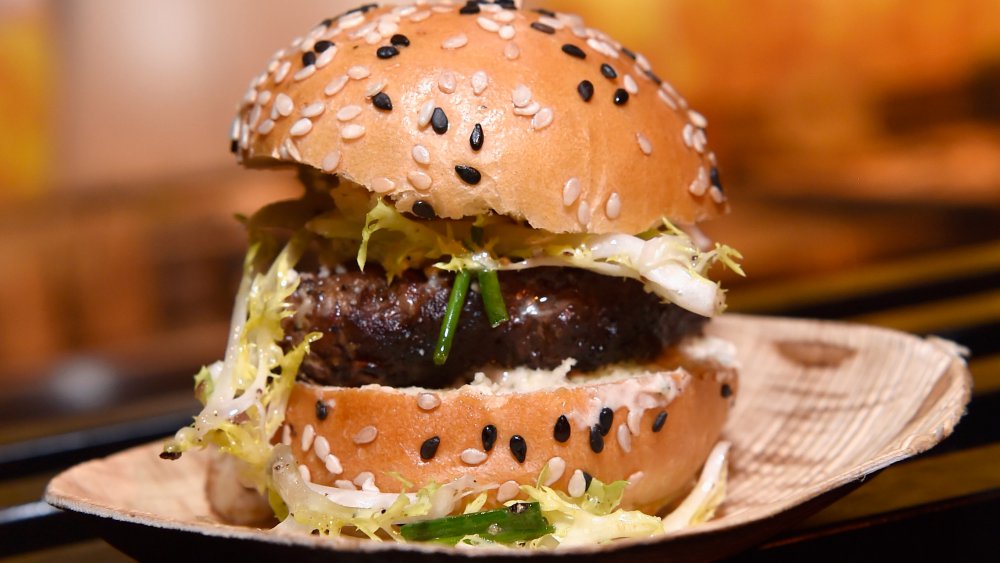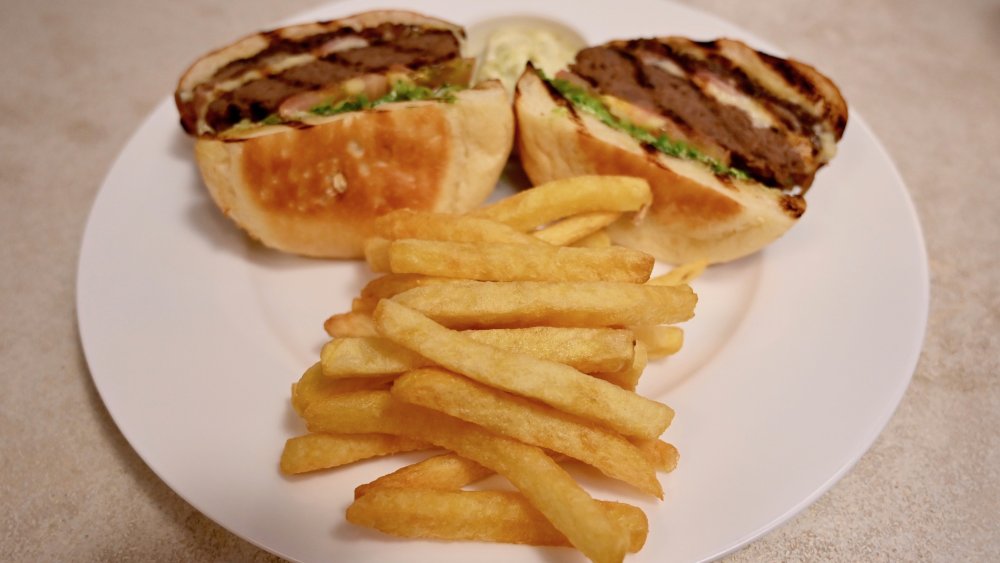You Should Never Order A Gourmet Burger At A Restaurant. Here's Why
When you're dining out, particularly at an upscale restaurant, you may be paying quite a bit for the restaurant's ambience as well as for the convenience of having somebody else prepare the food (and deal with the cleaning up afterwards, as well). That being said, if you want to make the most of what may be a pretty pricey splurge, it's best to order something that you can't easily prepare at home, or obtain a better version of for a tenth of the price at the greasy spoon down the road.
Another thing to be aware of is those items that restaurant employees admit are some of the industry's biggest rip-offs. Reader's Digest lists gourmet burgers as one of the major offenders, since while these may be some of the lower-priced items on the menu, the special ingredient that grants them that "gourmet" status, such as a tiny swipe of foie gras, is often present in such a small amount that it's not worth the massive markup. Burgers (or other items) purporting to contain truffle oil are a particularly bad bargain, since chances are this oil's never come within 100 miles of an actual truffle. Most commercial truffle oils are made from combining olive-oil with a lab-created truffle flavoring, which is why Zagat calls this ingredient "obnoxious, overpriced, and made with cheap material." (Martha Stewart's not a fan, either.)
The biggest gourmet burger ripoff of all
Perhaps the most egregious of gourmet burger hoaxes is the one perpetrated by restaurants trying to trick you into thinking you're eating a Kobe or Wagyu slider. True Kobe beef is only available in the U.S. in minuscule qualities, only served at 36 restaurants nationwide, and guess what? You're probably not eating at any of them. And if you were, you should be consuming your Kobe beef as nature intended, in the form of a delicious steak rather than ground up and slapped on a bun.
Most restaurants these days seem to have caught on to the fact that we restaurant patrons are likely to be skeptical of their Kobe claims. The term Wagyu is more commonly used now, but it has some problems of its own. As Forbes points out, "Wagyu" basically just means Japanese cattle. While there is such a thing as American Wagyu, meaning cattle descended from imported Japanese stock, the regulations surrounding the usage of this name are so unclear that you never know just how much Wagyu is in your burger's pedigree — if, in fact, the restaurant isn't just applying that title to plain old supermarket ground beef. That's why Forbes calls Kobe and Wagyu "food's biggest scam," so unless you want to overpay for your burger just for the heck of it, you're better off ordering another dish where the ingredients have a more plausible backstory.

